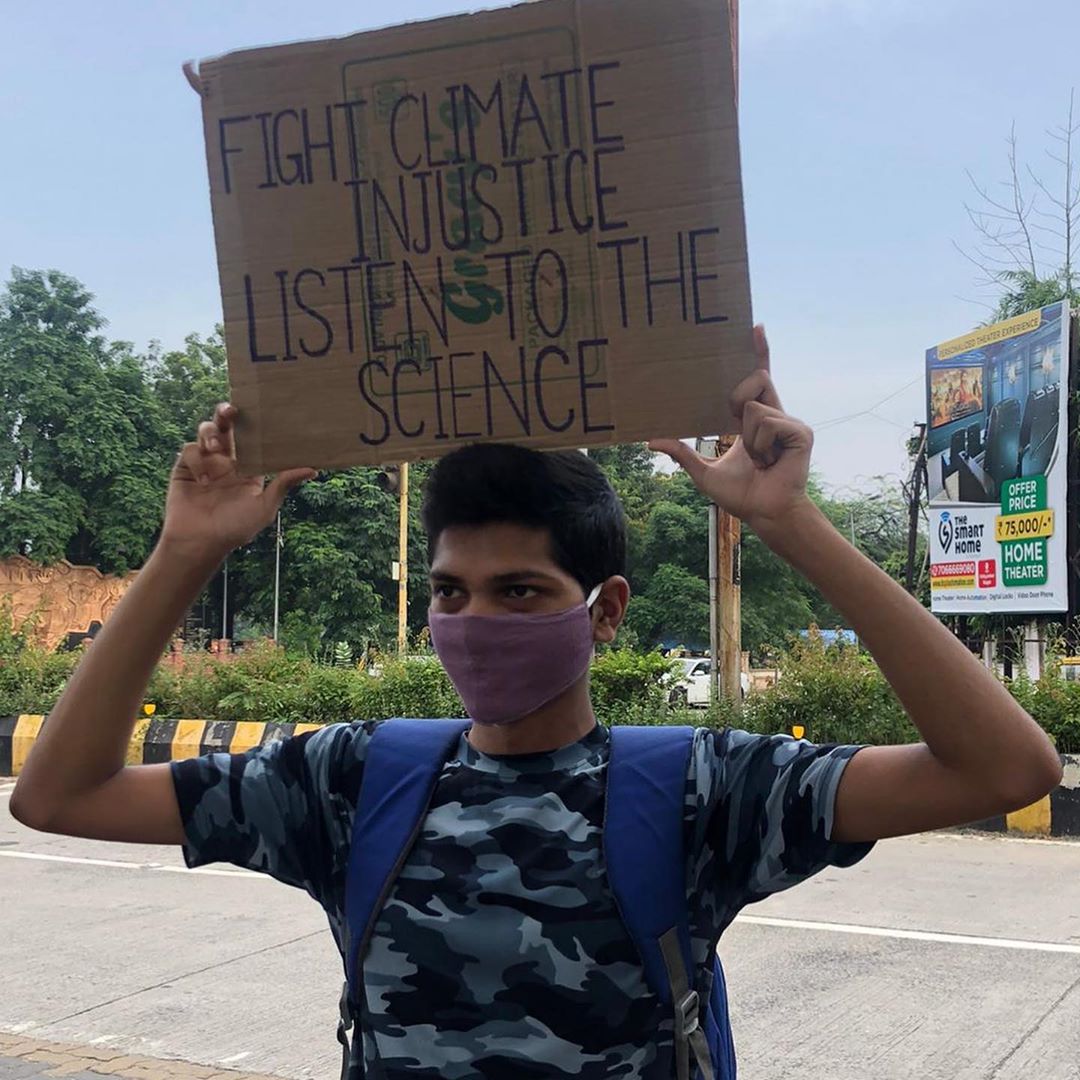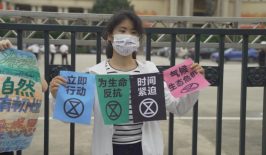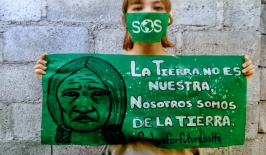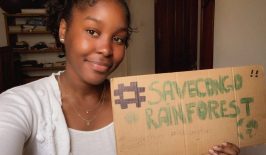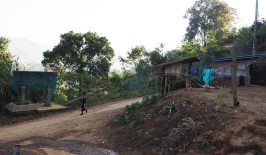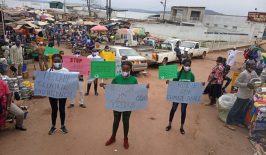Abhinav Lohkare is a 17 year-old with an unstoppable will. Deeply frustrated by inaction on the climate crisis, he’s making the most of his generation’s proclivity for digital tools to lobby hard for environmental change in Assam, India. Undaunted by government oppression, he’s determined to stand up for the people and animals of Assam.
Every year, devastating floods kill people and critically endangered animals in Assam. In 2020, over 5 million people were affected and 150,000 became refugees. At least 14 rare, one-horned rhinos were killed. Buffalo, wild boar, swamp deer and hog deer were also among the carnage.
“Annual floods are a part of Assam’s ecosystem,” Abhinav explains to me. “In ancient times, the people of Assam used to worship the floods, as it increases the fertility of the soil, and farmers can get more quality yield.”
But anthropogenic factors – including climate change and relentless deforestation – have intensified these natural events, leading to annual periods of destruction in the region. Models predict that the effects of these floods will only worsen each year. When Abhinav’s house was flooded and his uncle’s crops were destroyed, he knew he had to do something. He began to campaign with Fridays for Future and Extinction Rebellion India, taking advantage of digital tools to mobilise people, spread the word about environmental injustice, and put pressure on the government. “A lot of youth are using social media, and also the usage of social media has skyrocketed during lockdown,” he says. “We did a lot of Twitter storms and social media campaigns to raise awareness and put pressure on the authorities.”
Abhinav also works with Fridays for Future Digital, where he helped run an online campaign collecting relief for natural disasters around the globe, from the Californian wildfires to the floods in Bangladesh.
“I think social media is a great way to influence, [raise awareness] and engage people,” he tells me. “At Fridays for Future Digital, we organise a lot of online activities like community calls, art builds, and webinars to engage the youth.”
One key action Abhinav himself took was setting up a petition demanding that the government take radical, preventative action on the Assam floods. So far, he’s collected over 21,000 signatures. A skillful advocate, Abhinav sets out his demands clearly and concretely. He’s urging the government to reduce emissions and put in place long-term plans for protection of the region’s ecosystem. As well as sending multiple letters to the local government, Abhinav pressed mainstream media outlets again and again to report on the floods, but to little avail. “When the number of fatalities due to Assam floods were at peak, the Indian media was busy reporting on celebrities and their kids.”
Abhinav maintains his unfaltering determination in the face of government intimidation, which, unfortunately, is omnipresent. Many activists like Abhinav are placed in detention.
“The government is killing democratic dissent,” he says. “The Indian government is oppressing the youth who question and oppose them by misusing draconian laws, like the UAPA (Unlawful Activities Prevention Act), which is an anti-terrorist law, and the NSA (National Security Act).” He gives a recent example. Fridays for Future (FFF) India ran an email campaign opposing amendments to a key piece of environmental regulation, the Environment Impact Assessment (EIA). Activists condemned the controversial draft, which many argue legitimises environmental damage.
In response, the Delhi police accused FFF India of spreading religious hatred and committing acts of terrorism. They threatened the website host with several years’ worth of jail time. The incident even caught the attention of Greta Thunberg, who sent a tweet urging people to support FFF India’s plight. “They called us terrorists,” said Abhinav. “After a day, they withdrew it and said that it was just a typographical mistake.”
From the scale of the climate crisis to government suppression, Abhinav has his work cut out for him. Luckily, he’s not quite alone. He joins ranks with many other young, dogged environmental activists around the world who are connecting, building campaigns, and managing to amplify their voices through digital advocacy.
Not only are people in the Global South often among the most vulnerable to rising global temperatures, but they are also climate activists, educators and changemakers – fighting for a better world, innovating and inspiring others to tackle the issues that we as a planet face. In this series of interviews with environmental activists from Latin America, Africa and Asia, we want to do our bit to decolonise the conversation around climate change and lift up the underrepresented voices within the climate movement. Find all of the interviews in this Voices of Climate Justice series right here.
